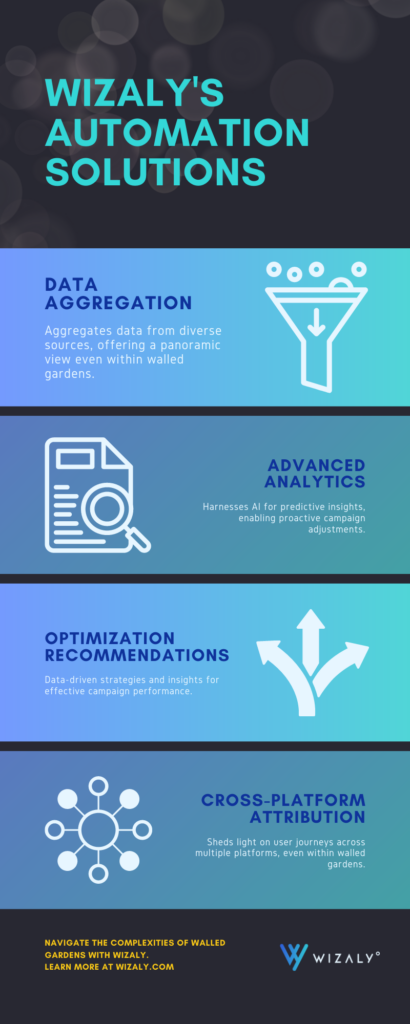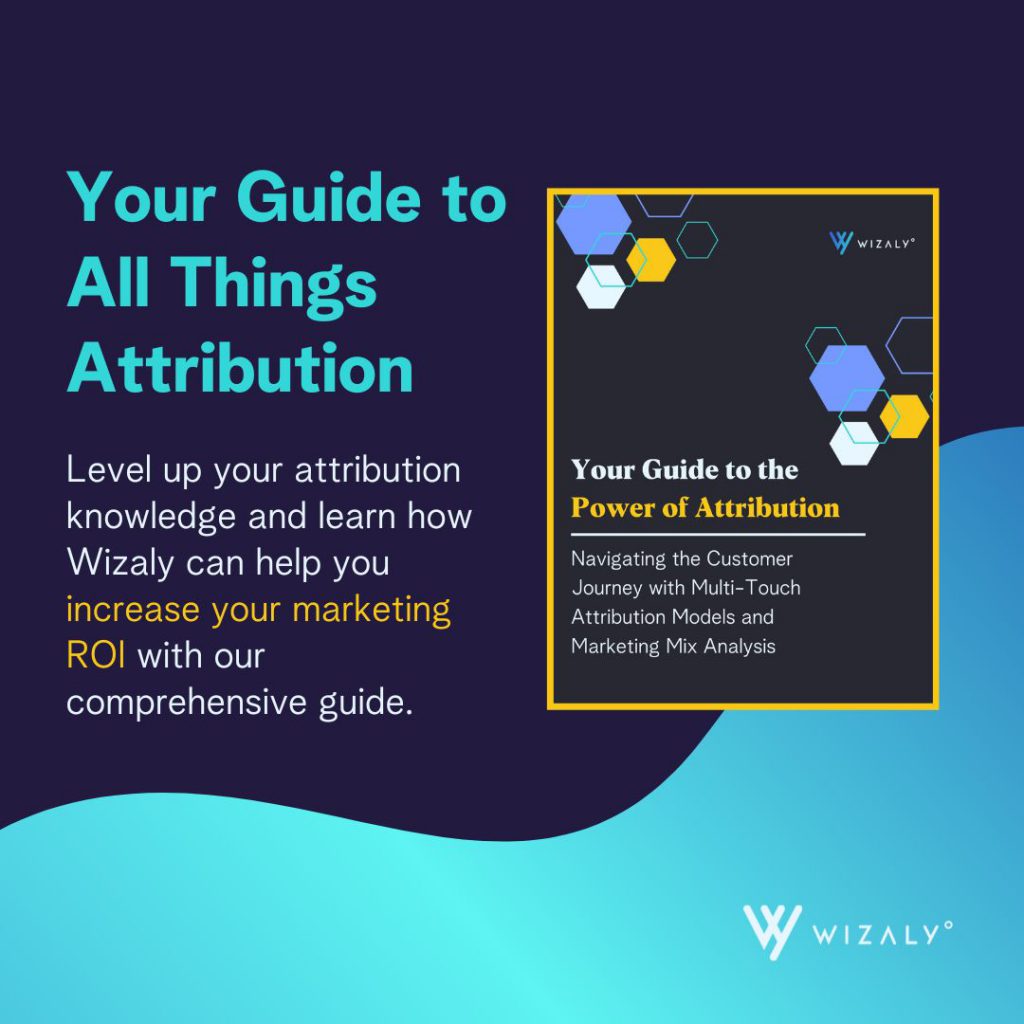In today’s digital landscape, the concept of “walled gardens” stands tall, affecting publishers, ad tech platforms, and the entirety of the marketing ecosystem. But what happens when such a phenomenon intersects with Facebook marketing? And how can one automate processes within these confines? If you’re a director or a senior marketing expert, consider these questions: Are you maximizing your potential within walled gardens like Facebook? What challenges or opportunities does this closed ecosystem present? This article aims to dissect this subject, providing an in-depth view that goes beyond the surface.
The Rise of Walled Gardens in Ad Tech
Walled gardens, often termed a closed ecosystem, are platforms where the provider dictates the applications, content, and media accessible to users. For instance, Apple’s iOS is an extreme example of a walled garden, where apps and content must meet specific criteria to be available to users. The term “walled garden” was first coined by John Malone of Telecommunications Inc., later acquired by AT&T, referring to the telecom industry’s closed systems. In the digital advertising realm, walled gardens like Google and Facebook dominate, limiting how much data advertisers can access and use.
Within these walled gardens, the data limitations often include:
- User Pathways: Advertisers cannot see the complete user journey. They get data on the interaction with their advertisement but not the overall browsing behavior.
- Third-party Cookies: Walled gardens restrict third-party cookie tracking, hindering retargeting efforts and broader insights into user behavior.
- Keyword-level Search Data: On platforms like Google, exact keyword-level data is no longer provided, making it challenging to determine which keywords are most effective.
- Detailed Demographics: While some demographic data is available, deeper insights like specific interests, browsing histories, and more are kept within the confines of the platform.
- Cross-platform Insights: If a user interacts with multiple devices or platforms (e.g., Facebook on both mobile and desktop), the data isn’t seamlessly integrated for advertisers, making it challenging to have a holistic view of user behavior.
These limitations demand that advertisers rethink their strategies, focusing on the data they can access and finding innovative ways to fill in the gaps.
The Duopoly: Google and Facebook’s Dominance
The digital ad market has long been dominated by a duopoly: Google and Facebook. These companies control a significant share of ad spend and dictate the terms for many advertisers and publishers. Their platforms, designed as walled gardens, restrict third-party access to user data, ensuring their continued dominance. This duopoly, coupled with the rise of closed platforms like Amazon, emphasizes the need for marketers to be adaptive and innovative.
Facebook Marketing within Walled Gardens
Facebook, as a reigning tech giant in the advertising ecosystem, offers a unique platform for marketers. Here, advertising isn’t just about clicks or ad revenue—it’s about user engagement and refined targeting based on rich user data. But the reality is that Facebook’s walled garden presents marketers with distinct challenges that can impede their campaign’s effectiveness and visibility.
Challenges faced by marketers within Facebook’s Walled Garden:
Limited Data Access: While Facebook provides granular targeting options, there’s a limited view into user behavior outside of the platform. This means that understanding a user’s full online journey, from initial interaction to final conversion, can be obfuscated.
Opaque Attribution: Determining the exact role that a Facebook ad played in the conversion path is tough. Did the user convert because of the Facebook ad, or were there other touchpoints outside of Facebook that influenced their decision?
Changing Algorithms: Facebook frequently updates its News Feed algorithm, which affects the visibility and reach of both organic posts and advertisements. Advertisers must continually adapt their strategies to these changes to ensure their content is seen.
Ad Fatigue: Given the sheer volume of ads users see on Facebook, standing out and retaining user attention becomes challenging. This requires advertisers to continually refresh their creatives and messaging to avoid ad fatigue and maintain engagement.
Data Privacy Concerns: With increasing scrutiny around data usage and privacy (e.g., GDPR and CCPA), Facebook has made several changes to how it handles user data. This has implications for ad targeting and retargeting capabilities.
Third-party Tool Integrations: Integrating external tools or platforms with Facebook for deeper insights or automation can be cumbersome due to the platform’s closed nature.
Ad Approval Delays: Facebook’s rigorous ad review process can sometimes result in delays or even rejection of ads, requiring advertisers to modify their content or design to meet the platform’s standards.
Rising Ad Costs: As more businesses flock to Facebook for advertising, the competition for ad space has led to increasing costs, especially for highly competitive sectors or target audiences.
To navigate these challenges, advertisers on Facebook must remain agile, continually update their knowledge of the platform’s best practices, and explore innovative strategies to maximize ROI. Integrating tools like Wizaly can provide deeper insights into customer journeys, helping to bridge some of the data gaps within the walled garden.
Automating Campaign Processes in Closed Ecosystems

With the growing intricacy of ad tech and the constraints of walled gardens, automation is not just a luxury—it’s a necessity. Through the use of APIs and in-house ad tech tools, advertisers can automate their campaigns, reducing manual processes and maximizing ROI. However, the closed nature of platforms like Facebook means that while automation can simplify campaign management, it also requires a deeper understanding of platform-specific nuances.
The limitations posed by these environments underscore the value of robust automation tools, and that’s where Wizaly steps into the picture.
Wizaly’s platform stands out by aggregating data from multiple sources, even within these restrictive spaces, giving advertisers a more comprehensive view of their campaigns. Advanced machine learning and AI capabilities facilitate predictive analytics, allowing marketers to proactively gauge and adapt to campaign performance. Seamless integration with major platforms, combined with custom reporting and actionable optimization recommendations, ensures that campaigns remain effective and agile. Furthermore, Wizaly offers invaluable insights into cross-platform attribution, which is often a gray area in walled gardens. This holistic approach provides clarity on user journeys across various touchpoints, empowering marketers to make informed decisions and optimize ROI, even within the constraints of closed ecosystems.
The Intricacies of Header Bidding & Publishers
Header bidding, a revolutionary advancement in ad tech, allows publishers to simultaneously offer ad inventory to multiple demand-side platforms before making calls to their ad servers. However, within walled gardens, this process is not as straightforward. Large publishers, like Google and Facebook, have made efforts to control header bidding, ensuring that their interests are prioritized.
Reclaiming Power in a Walled Garden Ecosystem
It’s not all doom and gloom for advertisers and publishers. By leveraging ad tech vendors, focusing on cross-device strategies, and advocating for transparency, there’s potential to reclaim power and influence within these closed ecosystems. Strategies like building walled gardens in-house, partnering with tech companies that prioritize transparency, and diversifying ad spend across multiple platforms can ensure more control over campaigns.
Challenges and Opportunities for Advertisers
Navigating walled gardens presents a myriad of challenges for advertisers, from restricted access to user data to complexities in campaign optimization. However, where there are challenges, there are opportunities. The rich data available within platforms like Facebook can power targeted campaigns that resonate deeply with audiences. Furthermore, understanding the nuances of these ecosystems can position advertisers as thought leaders, paving the way for innovation.
Key Takeaways:
- Walled Gardens: Dominated by tech giants, walled gardens restrict third-party access, offering both challenges and opportunities for advertisers.
- Facebook Marketing: Offers a unique platform for targeted campaigns but requires a deep understanding of its closed ecosystem.
- Automation: Essential in the age of ad tech, automation requires platform-specific knowledge within walled gardens.
- Reclaiming Power: Advertisers can harness strategies like in-house walled garden development and diversified ad spend to reclaim influence.
Ready to navigate the complexities of walled gardens and enhance your marketing strategies? Reach out to Wizaly—your trusted partner in understanding and mastering the intricacies of customer journey attribution in today’s digital landscape.




